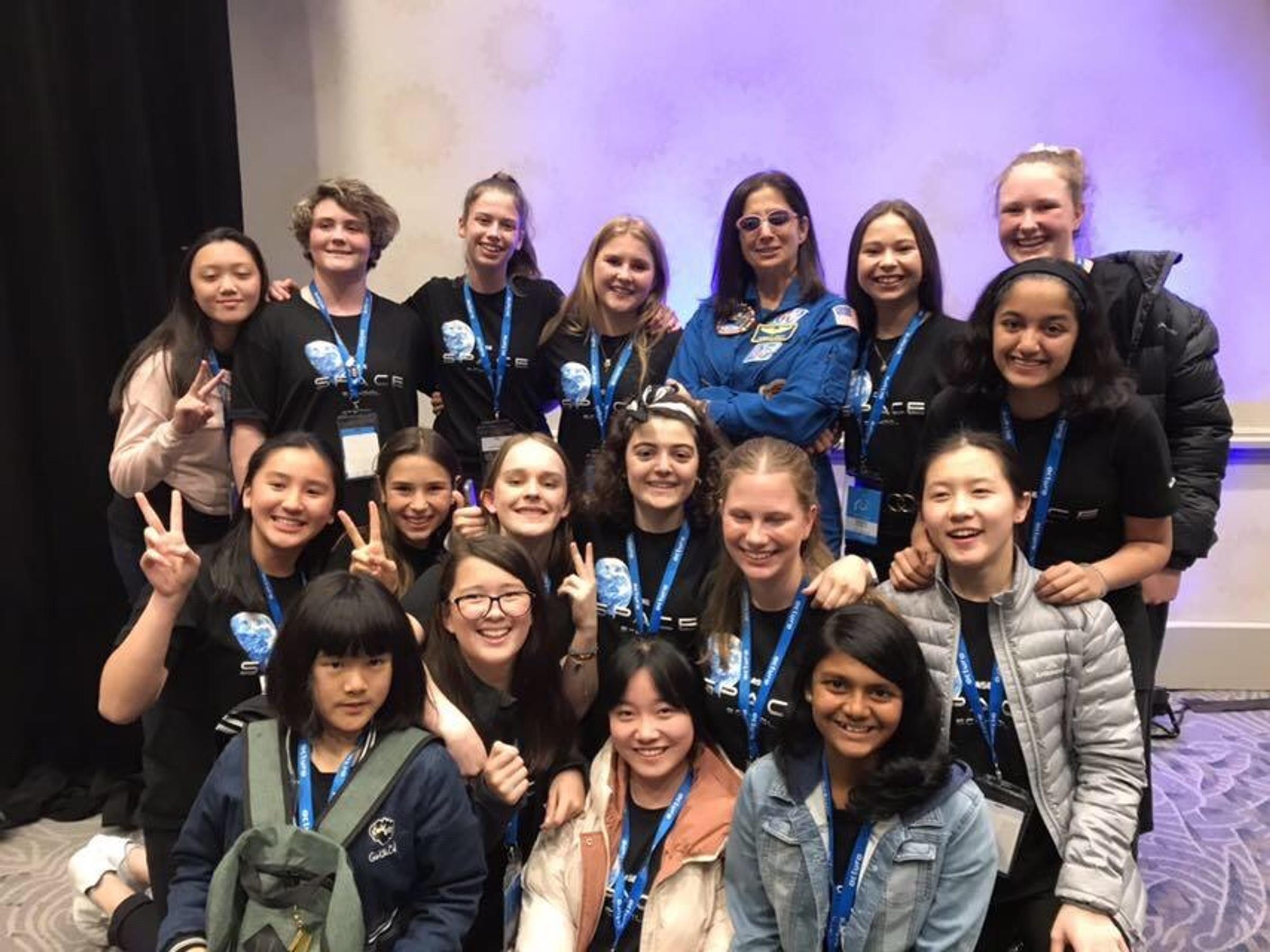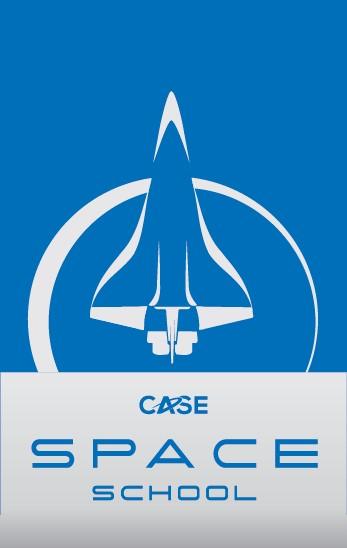Space Camp

The 2019 experience
Last December students Scarlett, Ruby, Ella, Tracy, Olivia, Bella and Kamila embarked on a two week trip to the USA visiting Houston and Huntsville as part of the Space CASE Program. These are some of the highlights.
In Houston we got to go to the Johnson Space Centre. This is where the NASA facilities such as astronaut training, vehicle and technology development and the original mission control are located. We did a tour of these facilities and were able to see some of the training equipment and replicas as well as the actual mission control that was involved in taking man to the Moon. Mission control had been restored to almost the exact state it was on Apollo 11’s launch day. Even details such as an apple on a desk and a can of soft drink from the time were included.
In the Johnson Space Centre’s Museum we got to learn about all the Apollo missions and the technology used to make them possible. A highlight of this museum was the almost complete Saturn 5 rocket. The Saturn 5 was the rocket that took man to the moon and is the biggest rocket humanity has ever made. It was incredible to see the rocket due to it’s breathtaking size and the complexity of its systems.
At the Houston Museum of Natural Science, we were lucky enough to have an opportunity to dissect a shark in a professional lab. We learned some marine biology, and shark ecology from the instructor, and learned that sharks have really special scales that allows them to be flexible but also hard enough to protect them. NASA got the idea for the tyres of the Lunar Rover from the sharks.
The shark we dissected was called a Spiny Dogfish, it was about 80 cm long. We were in a group of four with girls from different schools and our own. We started the dissection with the first cut made by Scarlett, Ms Gilbert was there to help us as well. As soon as we cut open the shark there was an oily liquid, we were later informed that the oil was from the shark’s liver and is used to help them with balance since they lack swim bladders. We followed the instructions to find each organ inside the shark and learned what they looked like. A favourite part of the dissection was the stomach and intestines part. Sharks' intestines have screw-like patterns which add more surface area for digestion and absorption. In one of the groups, their shark had a very rare disease that resulted in it having holes all over its stomach. That was very interesting to look at. Overall, we all gained lots of knowledge from the shark dissection and had great fun at the Museum of Natural Science.
When we were staying in Houston, every morning and afternoon we would have a group task. We also did activities that included the Space Bop, where Actura choreographed a dance for all the campers to learn and participate in every morning. At the start of the week we also had to make different posters about what our goals were going to be and what we were going to learn. One of the most important activities we did was in our mini groups. We had to make a machine that would help make a habitat on Mars. There were some guidelines e.g. make sure your machine is sustainable in some way and useful for realistic challenges. Most groups made a rover that would test the environment before people came to the planet but there was one group that came up with the idea of a robot that could build on the surface and prepare the area for astronauts to land.
As part of being in the CASE Space program, we all got to meet Nicole Stott an American engineer and a retired NASA astronaut who, amongst other accomplishments,is the first astronaut to do a water colour painting in space. She served as a Flight Engineer on ISS Expedition 20 and Expedition 21 and was a Mission Specialist o STS-128 and STS-133.We has the privilege of hearing her speak about the training that she undertook and why she decided to become an astronaut. She explained how the research and experiments that the astronauts do on the ISS (International Space Station) helps us make sense of what happens here on earth. At the end we got to ask Nicole questions and all took a group photo with her.
Whilst in Huntsville, Alabama we were put in groups to complete activities and space mission simulations. The MGSC girls were put in a group with girls from Strathcona Girls' Grammar. Our group, Phobos (named after one of Mars’ moons) demonstrated courage and teamwork throughout our week in Alabama and performed the best in the simulated space missions resulting in being awarded the commander’s cup to show all of our hard work and team effort.
We were very lucky in Huntsville to train on simulation flights to the Moon and Mars. Everyone was involved and people’s jobs ranged from Astronauts to Flight Directors, to people getting to walk on the ‘Moon’. We got scored on how well we succeeded in our mission! This was one of the highlights of our trip. Besides that, in Huntsville we also got to go on a ⅙ gravity trainer, (which is a contraption that makes you feel like you have the same amount of gravity as you do on the Moon). Another little machine we got to go on was the multi-axis trainer. This machine spins you around in every direction possible really fast. Everyone really enjoyed these machines and had a lot of fun on them!
At the end of all of this we have gained many new experiences and broadened our minds and knowledge about space, science and even the American culture. We would recommend this trip to everyone interested in space, STEAM, adventure or engineering. We gained lifelong friends and memories that will stay with us for ever.
Be part of it this year
Mentone Girls’ Secondary College is pleased to announce that we are offering students the opportunity to join the CASE Space School International Study Program this year.
CASE Space School is an amazing opportunity for students seeking to pursue success in a STEAM career. Students will be immersed in enriched and exclusive space science activities to explore the multi-facets of STEAM. Students will also learn and engage in an inspiring personal and leadership development program to truly empower them for changing times.
Students return with big dreams and lasting confidence, inspired by the ultimate STEAM experience at NASA.
An information evening is being held locally on Monday 23 March. This year the venue is Mentone Girls’ Grammar's Jubilee Theatre. Students and parents can learn more about the program.
RSVP to Actura using this link: https://actura.com.au/alliancevic/

